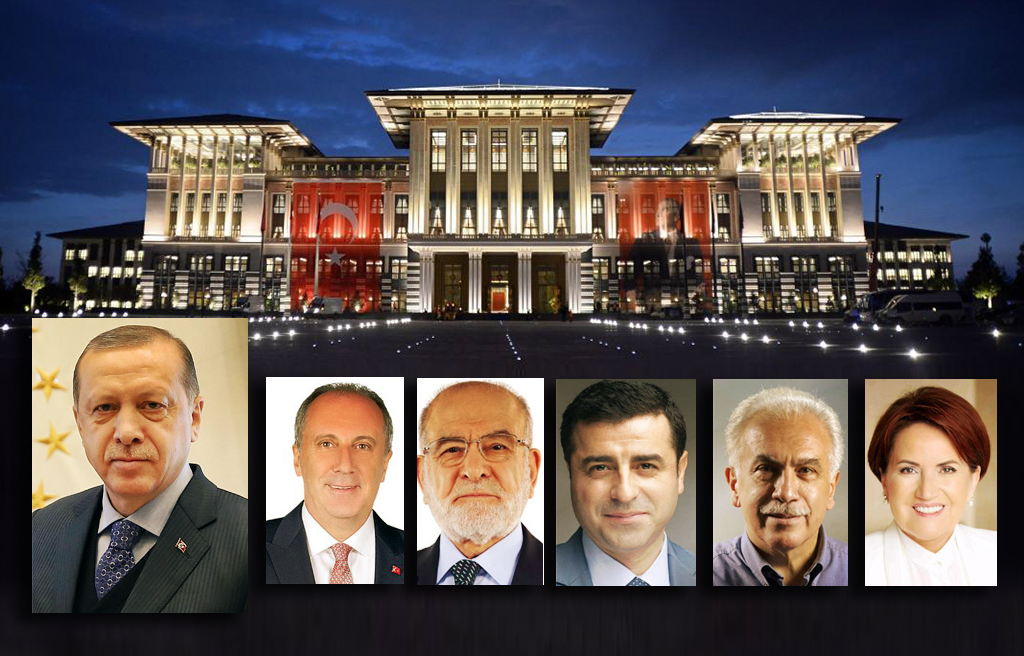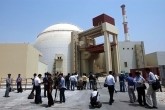Turkey is counting down the days until the June 24 elections, which everyone seems to agree will be a turning point in the country’s political history. The Supreme Electoral Council (YSK) announced that President Recep Tayyip Erdoğan, Meral Akşener, Muharrem İnce, Doğu Perinçek, Temel Karamollaoğlu and Selahattin Demirtaş will compete in the upcoming presidential race. Meanwhile, another 10 days are left until candidates for Parliament will become official.
Although the campaign will be over relatively soon, I have no doubt that it will be quite intense. Last week, Erdoğan unveiled an election manifesto that concentrates on the future. Muharrem İnce, one of the opposition candidates, has been trying to keep an equal distance from all voters with his statements, pledges and courtesy visits. He wants to go beyond the limits of his election manifesto and the Republican People’s Party (CHP) base as a presidential candidate. İnce hopes to be the most popular contender after the incumbent, Erdoğan — which is why he is experimenting with new ideas.
Personally, I expect many more surprises from the CHP’s presidential candidate, who seems not to care about consistency as much. Ince does not seem to mind that his promise to make voters “richer” contradicts his wish to serve as a ceremonial head of state under the parliamentary system, which he says he wants to restore. Judging by his other proposals, such as auctioning off the Presidential Complex or turning it into a university campus, he seems to forget that, if elected, he will serve under the presidential system. Still, it is a positive development that he quickly backtracked on his earlier call for 50,000 lawyers to be present in front of the YSK on the morning after the election. Meanwhile, it remains to be seen what kind of interesting promises the rest of the candidates will make to distinguish themselves from their opponents.
The June 24 election is truly a turning point in Turkish politics since it is surrounded by many unknowns. Turkey will not only hold two simultaneous elections but also transition into a new system of government, and it is unclear how those factors will affect voter behavior. The competition between six presidential candidates, two electoral alliances — the People’s Alliance and the National Alliance — and the Peoples’ Democratic Party (HDP) is likely to produce unprecedented results in terms of campaign rhetoric and distribution of parliamentary seats. Up to eight political parties could win seats in Parliament next month, and the growing presence of identity-oriented parties could compel center parties to make certain changes.
Obviously, another question is whether the various alliances, which will grant fringe parties access to national politics, will stay intact after the elections. The People’s Alliance rests on the spirit of resistance after the July 15 coup attempt and seeks to institutionalize the new system of government — which suggests that it is here to stay. At the same time, it is important to note that the alliance formed by the Justice and Development Party (AK Party), the Nationalist Movement Party (MHP) and the Grand Union Party (BBP) adopted the language of “native-national” and effectively shaped the narrative of the CHP’s own alliance. It was no coincidence that the CHP-led coalition was named after the nation as opposed to democracy. Again, the HDP’s exclusion from the various alliances was directly related to the Turkish government’s recent counterterrorism efforts.
The Nation Alliance, formed by the CHP, the Good Party (IP), the Felicity Party (SP) and the Democratic Party (DP), is essentially pragmatic. Although they focus on the “shortcomings” of Turkish democracy, it was noteworthy that they refrained from pledging a return to the parliamentary system in their protocol — which suggests that the only thing they have in common is a desire to criticize Erdoğan and the AK Party. Unfortunately for them, anti-Erdoğanism is not an infinite source of political capital that could nurture all opposition candidates.
To what extent the various political parties will be able to work together in the new Parliament remains unclear at this time. What we can safely assume right now is that parliamentarians will have stronger links to their local communities. This process, which will democratize Turkish politics, is likely to weaken the grip of party chairpersons in their movements.
[Daily Sabah, 12 May 2018]
In this article
- Opinion
- 2018
- 2018 Elections
- Anti-Erdoğanizm
- Counterterrorism
- Daily Sabah
- Early Elections in Türkiye
- Elections
- Muharrem Ince
- Nation Alliance
- Opposition
- People's Alliance
- Presidential Government System
- Recep Tayyip Erdoğan
- Selahattin Demirtaş
- Snap Elections
- Terrorism
- The President of the Republic of Türkiye
- Turkish President
- Türkiye
- Türkiye's Democratic Party (DP)
- Türkiye's Elections
- Türkiye's Elections 2018
- Türkiye's Felicity Party (SP)
- Türkiye's Good Party (IP)
- Türkiye's Justice and Development Party | AK Party (AK Parti)
- Türkiye's Peoples' Democratic Party (HDP)
- Türkiye's Republican People's Party (CHP)
- Türkiye's Supreme Election Council (YSK)
- Türkiye’s Nationalist Movement Party (MHP)



